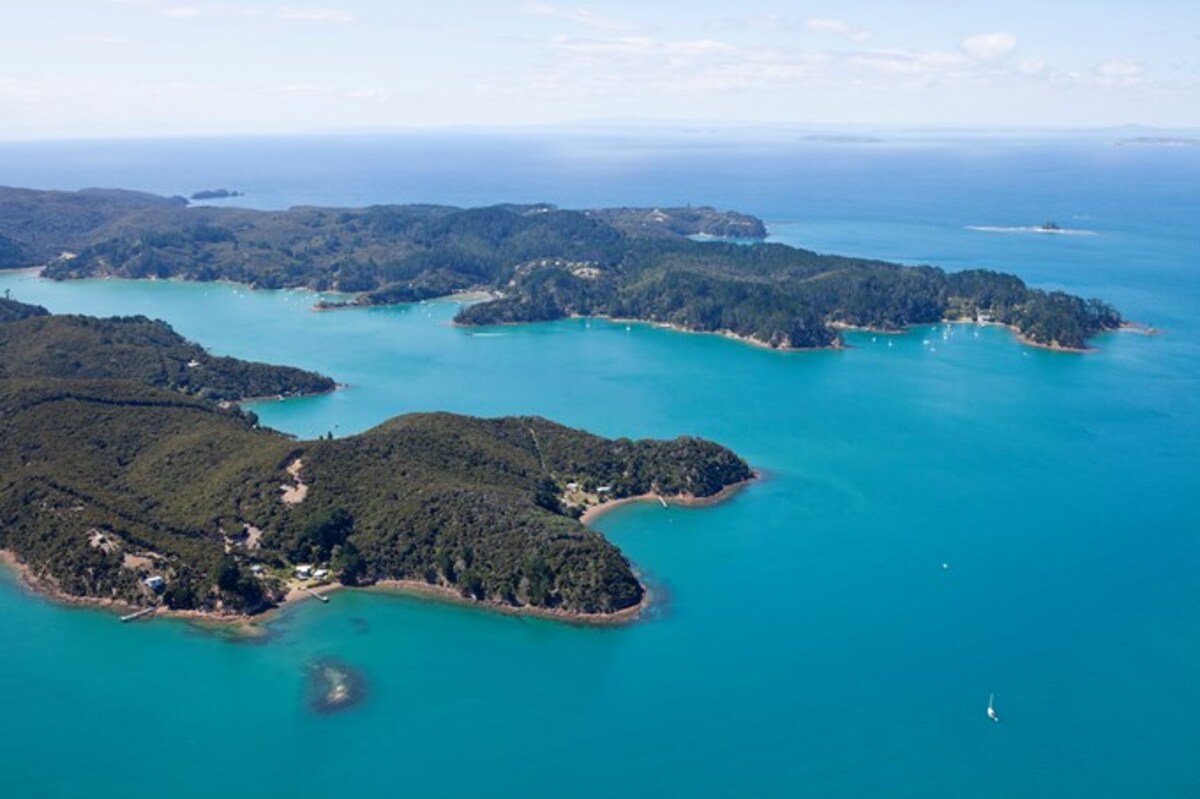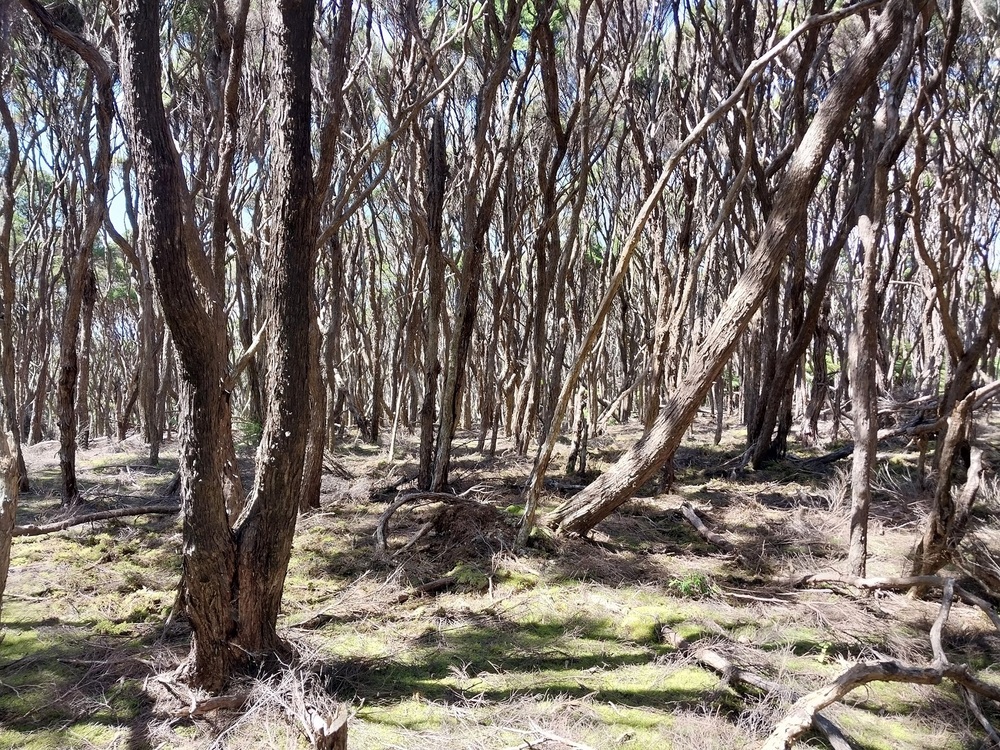New Zealand Nature Fund supports Kawau Island restoration project
Auckland Council
18 November 2024, 6:17 PM
 Aerial view of Kawau Island in Hauraki Gulf.
Aerial view of Kawau Island in Hauraki Gulf.The ambitious endeavor to restore Kawau Island's biodiversity has gained support from the New Zealand Nature Fund, marking a pivotal moment in conservation efforts within the Tīkapa Moana/Te Moananui-ā-Toi/ Hauraki Gulf.
Led by Auckland Council in partnership with Manuhiri Kaitiaki Charitable Trust, Predator Free 2050 Limited and the Department of Conservation, and in collaboration with the Kawau Island community, the project aims to initially eradicate introduced browsing pests (wallabies and possums). Discussions with the
Kawau Island community are underway regarding the potential future eradication of invasive predators (stoats and rats), on the journey towards a pest-free Kawau Island.
Kawau Island, known for its diverse ecosystems and rich biodiversity, has faced ecological challenges due to the presence of browsing pests such as wallabies and possums. These invasive species have threatened native flora and fauna, hindering the island's natural regeneration processes.

The NZ Nature Fund was established in 2000 to raise funds from donors for projects that halt the decline of endangered species, protect and restore Aotearoa New Zealand’s wild places. In the past 12 months NZNF has raised over $1.8 million from private donors for more than 14 conservation projects.
Chair of the Planning, Environment and Parks Committee Councilor Richard Hills says enabling the public to donate to the project through the NZ Nature Fund is a crucial step towards realising the vision of a pest-free Kawau Island.
"The support from the New Zealand Nature Fund underscores our commitment to protecting Auckland's natural heritage and enhancing the resilience of our ecosystems."
Significant funding contributions to the project have been secured from Predator Free 2050 Limited, Auckland Council, and the Ministry for Primary Industries through the Tipu Mātoro National Wallaby Eradication Programme. To further support the delivery costs of the project, the New Zealand Nature Fund has set a fundraising target of $2 million, with local landowners kick-starting the fund by generously contributing over $500,000 to date.
"We are proud to be an anchor funder and supporting this large, complex landscape scale project which will contribute to a growing national and international body of knowledge around predator and pest eradications,” says Brett Butland, Landscape Director for Predator Free 2050 Ltd. “At 2058 hectares, Kawau Island could be poised to become one of New Zealand's largest inhabited pest-free islands and is therefore a significant milestone on the national journey towards a predator free New Zealand by 2050.”
Auckland Council’s Project Lead Lisa Tolich emphasised a project of this scale demands a collaborative approach.
“We are grateful for the support from our partners and the local community to date, including the Pohutukawa Trust, whose involvement has been instrumental in advancing our shared conservation goals."
Manuhiri Kaitiaki Charitable Trust’s Ayla Walker says that as kaitiaki they are committed to preserving and enhancing the natural environment in Tīkapa Moana/Te Moananui-ā-Toi/ Hauraki Gulf through sustainable management and community engagement.
“When we work together as partners to protect and enhance biodiversity, we are working together to create a better future for tamariki, mokopuna and generations to come. If we protect and restore the whenua (the land), if we protect and restore the moana (the ocean), then all people will thrive.”
With the removal of browsing pests, nationally and regionally threatened plant and animal species are expected to increase in abundance. Weed management efforts will also support the native seedbank to naturally restore.
Further discussions will continue with the community as the project looks ahead to planning and delivering the next stage of removing invasive predator species, following confirmation of the successful eradication of the browsing species.
The eradication of invasive species from Kawau Island is expected to yield numerous benefits, including extending a vital predator-free corridor linking mainland Tāwharanui Regional Park to Kawau Island and nearby pest-free sanctuaries in the Hauraki Gulf. The project also hopes to see the restoration of native vegetation, enhanced habitat for endemic species like kiwi and pāteke, and increased resilience of marine ecosystems in the Hauraki Gulf.
"This project underlines what can be achieved and sets a high bar for private donations from a local community, for conservation initiatives. It is a fantastic demonstration of how communities and organisations can work together to achieve ambitious environmental goals," noted Denis Marshall of the New Zealand Nature Fund.
For more information on the Kawau Island restoration project and to support ongoing conservation efforts, please visit New Zealand Nature Fund.



